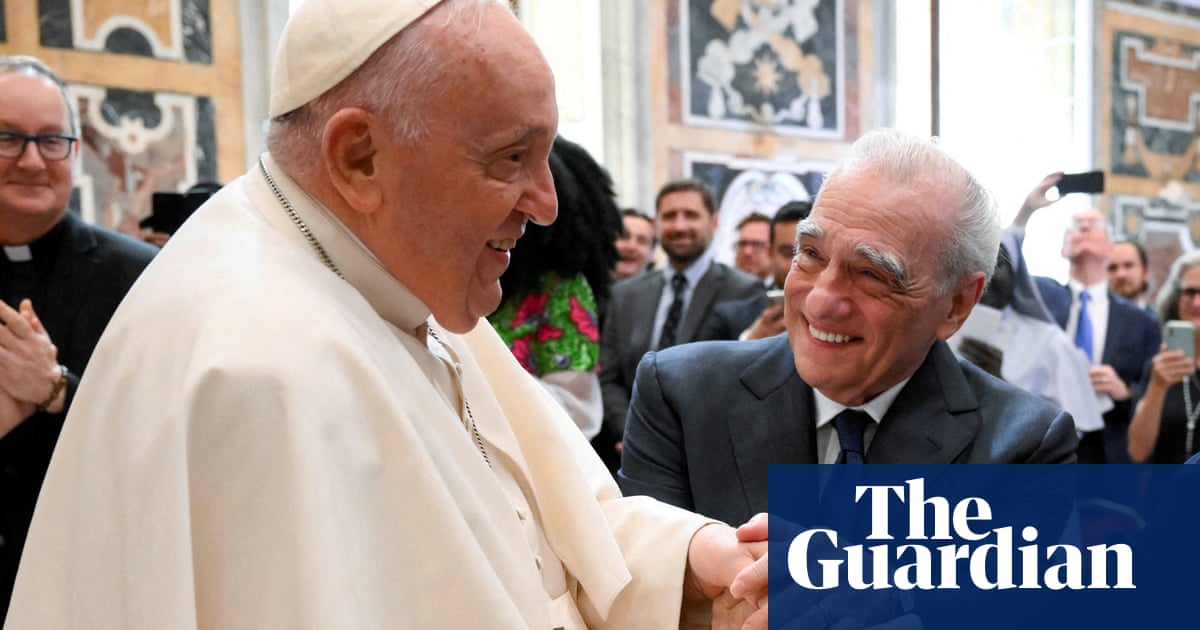
I have long harboured an irrational loathing for the word “content”, especially when used as a casual stand-in to mean something like a film, a television show, or a piece of art or music.
I suspect that often when people use the word it is to make them feel as if they’re in Succession, when it’s more like we’re all languishing in an endless episode of The Apprentice. It is representative of the kind of insidious business speak that has become normal for non-business people to say, like “personal brand”, or “blue-sky thinking”. Don’t get me started on touching base.
Imagine my pleasure, then, when I read Martin Scorsese’s essay for Harper’s about Federico Fellini, which is disdainful about the notion of art as “content”. Scorsese’s piece is ostensibly about the Italian director, although it is also an expansion of his ideas about how risk-averse the industry is becoming, which he first put forward in 2019, talking about the success of superhero films and how they are “not cinema”. I love a Marvel movie as much as the next nerd, except for the ones that break the three-hour barrier, because none of them need to be that long and it’s just showing off, but Scorsese argued that putting out superhero sequel after superhero sequel was simply satisfying an existing demand, rather than allowing films to be surprising or unexpected, which could create new demand.
He returns to similar territory in Harper’s, with a lengthy, erudite piece about the art of cinema, referencing Truffaut, Godard, Cassavetes and Antonioni, with some thoughts about the problems with algorithms dictating what films we, as viewers, are made aware of. I enjoyed his praise of curated platforms such as Mubi, even though my own Mubi subscription lingers as a regular reminder of how I am a terrible person for spending the evening watching yet another reality show about dogs who don’t know how to behave, when I should be watching an overlooked French classic about heartbreak and infidelity before it disappears.
Scorsese argues that “the art of cinema is being systematically devalued, sidelined, demeaned, and reduced to its lowest common denominator, ‘content’ ”, noting that a word used almost exclusively in the context of business is now applied to “all moving images”. It is worse than that. It is used for everything. A song, say, is content, as is the material around it, as is an interview to promote it, as is a post by someone about how much they like it. Scorsese is taking a stand, but I worry that it is already too late.
Countdown is not the place for spite
My lockdown-three bingo card, handmade from sourdough starter and salty tears, of course had Tory backbenchers clamouring for an early end to restrictions, science be damned.
What it didn’t have was Anne Robinson being slated on Twitter for something she said during an episode of The Weakest Link, a quiz show that ended in 2012. When she was named as the new host of Countdown a clip resurfaced, showing her being nastily snobbish to a contestant.
It was the kind of nasty not much seen in pop culture now, although it used to be common, before viciousness was outsourced to trolls. The Weakest Link’s selling point was that she was hard on the contestants; she purred insults at them, and they took part expecting to be insulted.
This was also the era of The X Factor spotlighting people who couldn’t sing and sneering at them for daring to think they could. The last couple of years have seen attempts to rethink that period, with documentaries like Jade: The Reality Star Who Changed Britain, Celebrity: A 21st Century Story and Framing Britney Spears showing how cruel the spotlight could be.
Times have changed. Robinson is taking over from Nick Hewer, who became famous on The Apprentice, a show not known for being kind to its wannabe magnates. He didn’t host Countdown as if Alan Sugar were about to fire each contestant. I’m sure Robinson will avoid berating anyone for their personal lives, when all they would like is a consonant, please.
Jason Donovan should be on danger money
Dancing on Ice fans will be disappointed to learn that there is to be no live dancing on ice or otherwise on ITV this weekend, after a combination of Covid and injuries greatly reduced the number of celebrities able to take part in the episode.
You know what they say: losing one contestant is careless, but losing five is a sign, perhaps, that the competition is more Hunger Games than Olympic Games. Jason Donovan’s back pain had meant that he would miss another show, while Emmerdale’s Joe Warren-Plant had to withdraw after testing positive for Covid, just as Rufus Hound did earlier this month.
“The welfare of all of those involved is important to us and we felt it prudent to take a week’s break at this juncture,” a spokesperson told the BBC, to which you can only reply, duh. Dancing on Ice is, inexplicably, on its 13th series, and I say inexplicably, because I can’t work out how there are any uninjured celebrities left to appear.
If it ever does come to an end, perhaps they could try another activity. I propose All About That Base, a new concept in which celebrities try base-jumping, and hope they can pick up the skills in time.
Rebecca Nicholson is an Observer columnist












